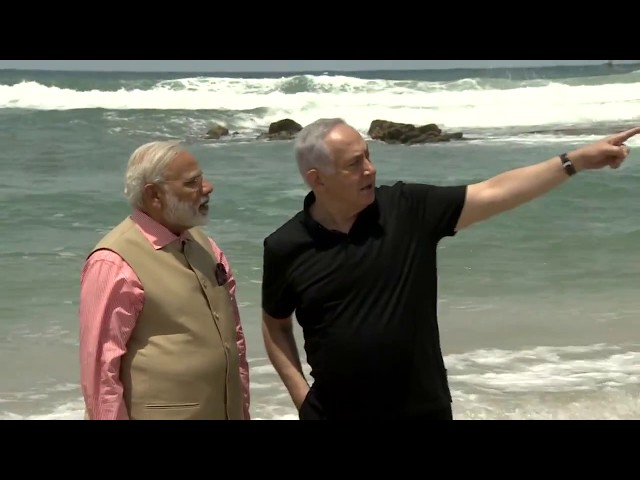TEL AVIV: India is seeking Israel’s help to ensure functional tap-water to every Indian household by 2024 with a senior minister visiting the country next week to fulfill the government’s mission, India’s envoy here has said.
During his Independence Day speech, Prime Minister Narendra Modi said that more than Rs 3.5 lakh crore will be spent in the coming years under the ‘Jal Jeevan Mission’ to bring piped water to households by 2024.
“During the historic visit of our Prime Minister (Modi) to Israel in July 2017, India and Israel agreed to establish a ‘Strategic Partnership in Water and Agriculture’ in view of the centrality of these areas to development. Under Prime Minister Modi’s leadership, the Government of India is according top priority to conservation, development and management of water resources”, India’s newly appointed Ambassador to Israel, Sanjeev Singla, told PTI.
“The visit by Jal Shakti Minister Gajendra Singh Shekhawat is significant as both sides will explore possible areas for further collaboration and tangible outcomes. It is also in line with the Prime Minister’s vision to ensure functional tap-water to every household in India by 2024 under the Jal Jeevan Mission,” Singla, who served as Private Secretary to Prime Minister Modi, emphasised.
Israel has made water recycling an integral part of daily life.
More than 80 per cent of household waste water is recycled, amounting to 400 million cubic meters a year, the Environment Ministry says. That ratio is four times higher than in any other country, according to Israel’s water authority.
Shekhawat, who will be on a three-day visit to Israel between November 17 and 19, will interact with Yuval Steinitz, Israel’s Minister of Energy, who is also responsible for natural resources like water, with leading experts in the field of water management, some identified Israeli companies active in the field and other relevant stake-holders.
Shekhawat will co-chair the India-Israel Strategic Partnership on Water being organised by the Embassy of India in Tel Aviv, along with the Israeli Ministry of Energy and Ministry of Foreign Affairs, on November 18, 2019.
The Jal Shakti minister will also be the keynote speaker for the prestigious biennial WATEC event on November 19. The Union Cabinet Minister is being accompanied by a large delegation from the states of Andhra Pradesh, Maharashtra, Karnataka, Tamil Nadu, Punjab and Delhi.
A large number of Indian businessmen will also be joining Shekhawat in these events, and would be separately exploring opportunities of collaboration with potential Israeli partners.
Representatives of the Israeli Ministry of Energy and Foreign Affairs have also expressed enthusiasm at the first visit of India’s Jal Shakti Minister.
“Israel is glad to continue this important bilateral dialogue, to share with India its experience and innovation related to water management challenges, inspired by the vision of both Prime Minister Benjamin Netanyahu and Modi”, the Israeli ministries said in a statement.
“We are glad for this opportunity to strengthen our ties, sharing knowledge and standing by each other solving common challenges for the benefit of our peoples. Water is a source of life. Every human being has the right for access to water, and we are partners in promoting this goal,” they said.
Five key areas have been identified for in-depth discussion during the Indian minister’s visit which includes his personal participation in many of the presentations.
Waste water treatment; recycle and resue; water use efficiency; water – assessment, measurement and management with focus on technology to monitor ‘functionality’ of tap connection; ground water assessment and recharge; drinking water and desalination are some of the key areas identified for possible collaboration, informed sources said.
The ‘functionality’ aspect will be monitored in terms of regularity of water supply to every household on daily basis, adequate quantity and prescribed quality system of monitoring through sensors and use of IoT in the country.
Treatment facilities are said to remove contaminants to a level set by the Health Ministry and the water is then sent to farmers.
Exports of water-saving Israeli technologies exceeds $1.5 billion a year, according to industry sources. PTI






